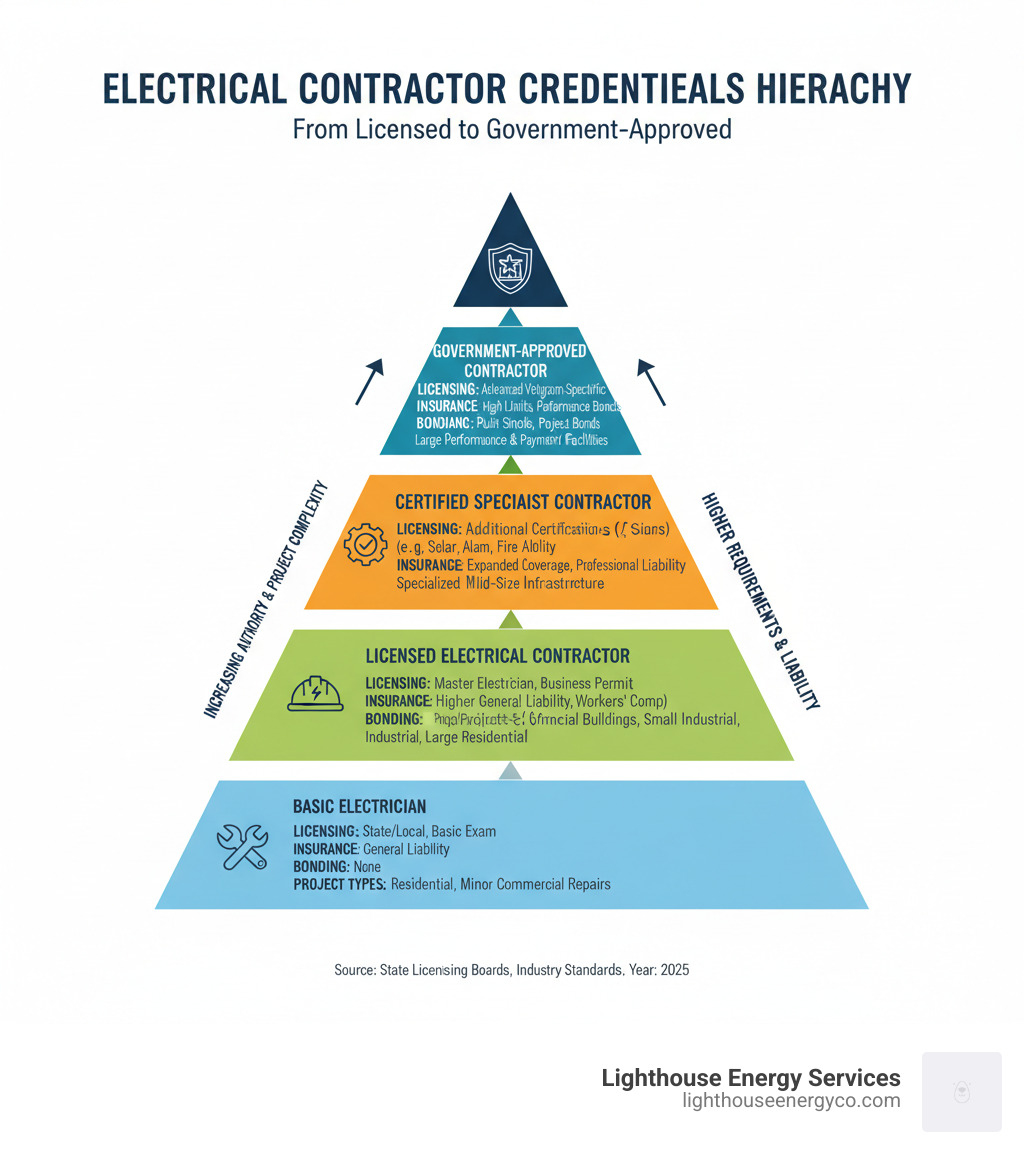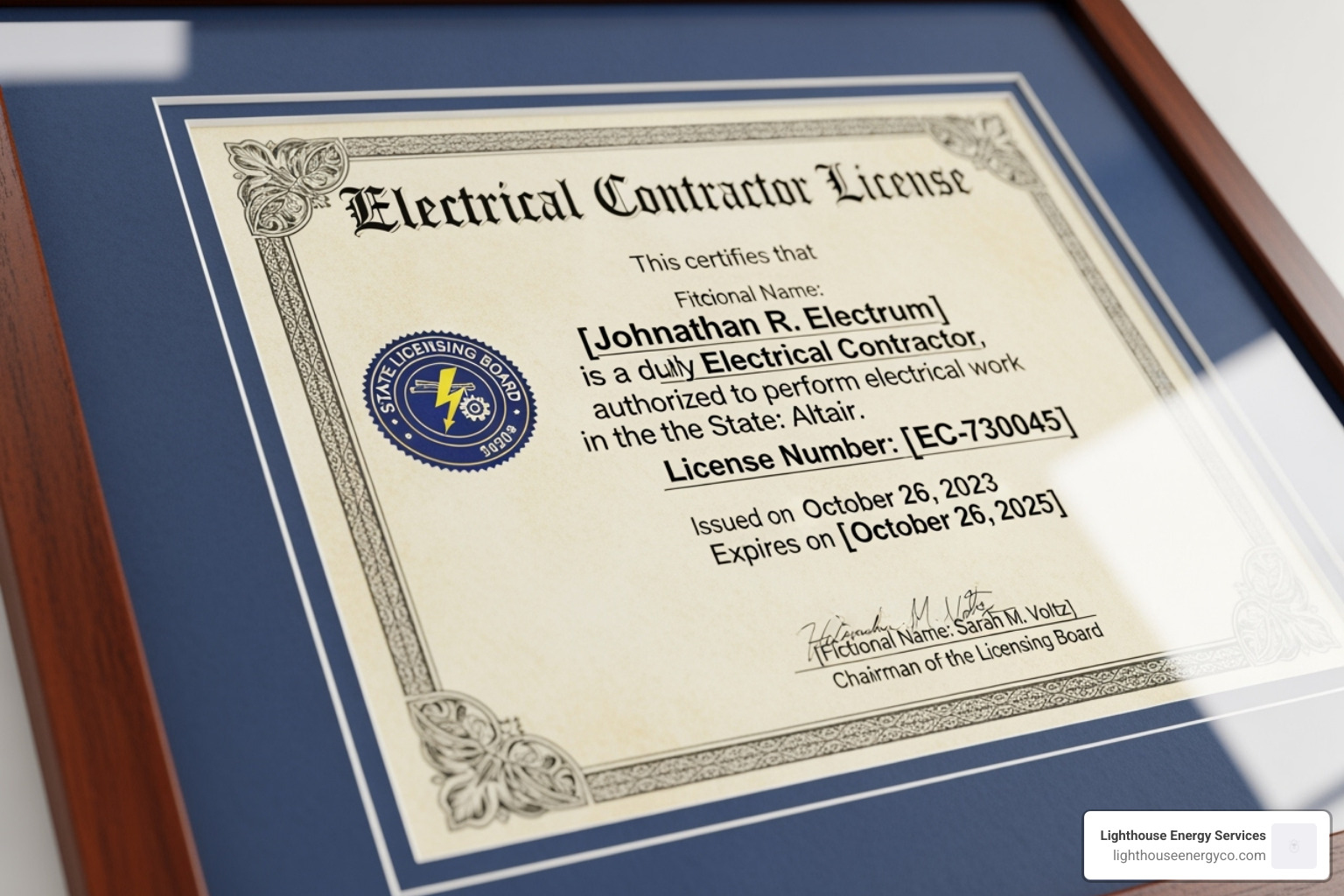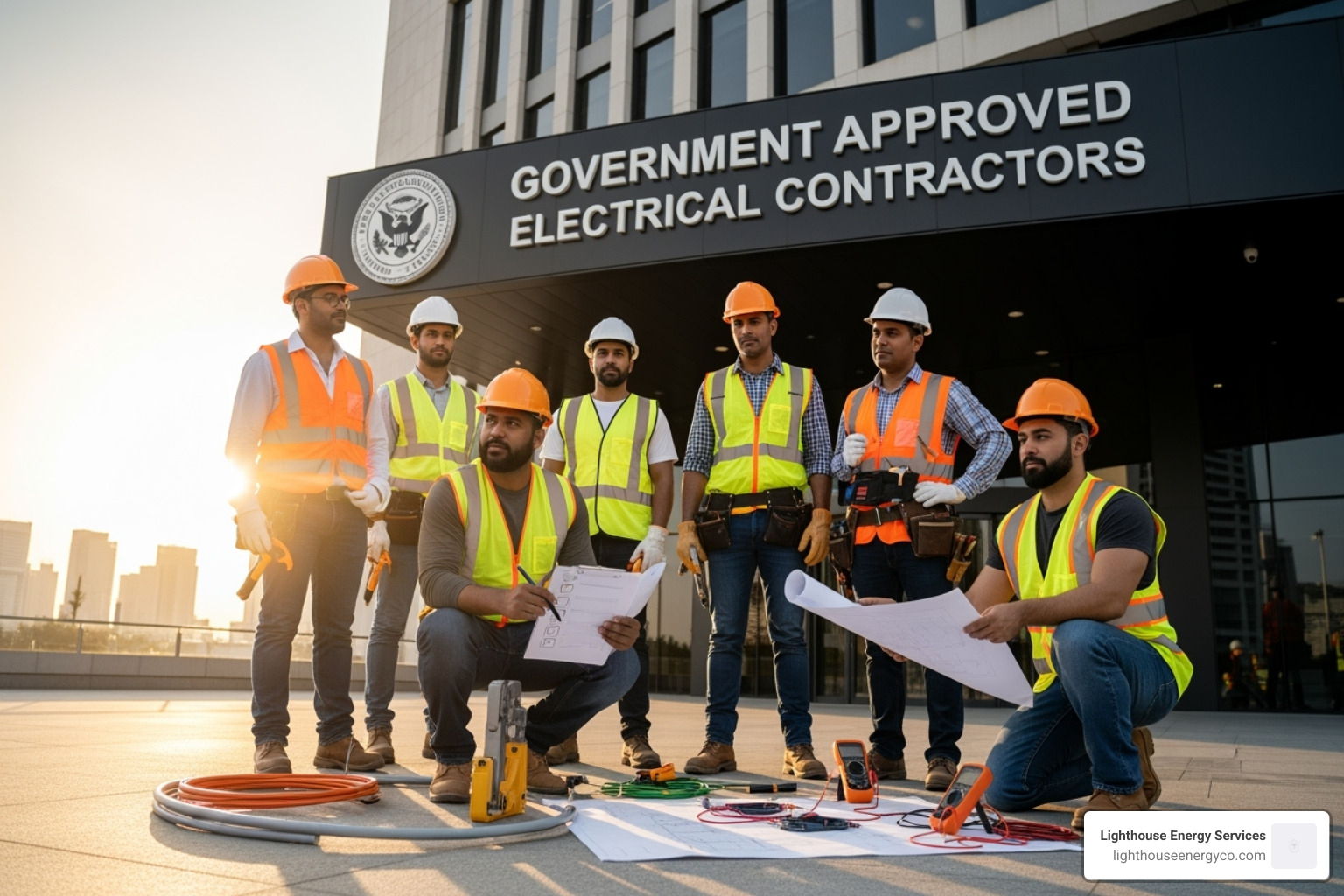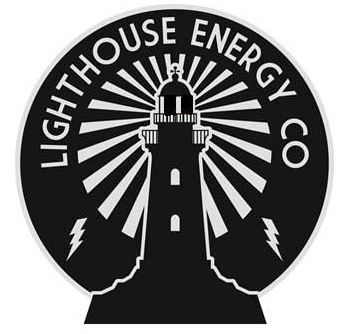Understanding Electrical Contractor Licensing and Approval
Govt approved electrical contractors are licensed professionals who have met additional vetting requirements to work on government projects or participate in government-sponsored programs. Here’s what you need to know:
Quick Answer:
- Licensed Contractor: Meets state minimum requirements to perform electrical work.
- Government-Approved: A licensed contractor with additional certifications, higher insurance limits, and specific bonding required for public projects.
- Key Difference: All government-approved contractors are licensed, but not all licensed contractors are approved for government work.
- Where to Verify: Check your state licensing board website, county building department, or program-specific directories.
When planning a commercial project or facing an electrical emergency, understanding a contractor’s credentials is vital. The distinction between a standard licensed electrician and a government-approved one can significantly impact your project’s safety, compliance, and cost.
Government approval signifies a contractor has passed a rigorous vetting process beyond basic licensing. This often includes specialized training, proven experience, higher insurance coverage, and performance bonds. For commercial buildings, hospitals, schools, and infrastructure, these requirements are essential for public safety and code compliance.
The approval process varies by location. For example, New Jersey requires a four-year apprenticeship and journeyman experience. New York’s NYSERDA programs maintain directories of pre-approved contractors. In Florida, contractors need state certification plus local permits.
I’m Bruce Kemp, and through my electrical contracting company, I’ve spent decades working with govt approved electrical contractors. I’ve steerd complex licensing requirements across multiple jurisdictions, and my experience shows that understanding these credentials is crucial for anyone hiring electrical services.

What Does “Government-Approved” Really Mean?
When you hear the term govt approved electrical contractor, what does it mean? It’s a step beyond basic licensing. While every legitimate contractor needs a license to operate, government approval means they have met higher standards for specific types of work or programs.
Think of a license as a driver’s permit and government approval as a commercial driver’s license with special endorsements. It shows a contractor can handle bigger, more complex jobs with greater responsibility.
The vetting process varies by location but is always thorough. For instance, New Jersey’s Board of Examiners of Electrical Contractors investigates violations and requires business permit renewals every three years. You can learn about state regulatory bodies like the Board of Examiners of Electrical Contractors to see how strict this oversight is.

This approval process scrutinizes several key factors: comprehensive licensing, proven experience, financial stability, substantial bonding and insurance, clean safety records, a strong compliance history with regulations and codes, and specialized technical expertise.
This rigorous vetting isn’t just red tape; it protects public safety and ensures quality. Choosing a govt approved electrical contractor means you’re hiring a professional proven to deliver safe, compliant work.
The Path to Becoming Government-Approved
Becoming a govt approved electrical contractor is a journey of dedication. It typically starts with a multi-year apprenticeship, like the four-year program required in New Jersey, followed by at least a year as a journeyman electrician. This ensures a solid foundation of both classroom knowledge and real-world experience.
Next come rigorous written and practical exams covering electrical theory, the National Electrical Code (NEC), local codes, and safety. Beyond technical skills, the process involves background checks, meeting high-limit insurance requirements, and securing bonding to provide financial guarantees for project completion.
For example, New York City’s Department of Buildings (DOB) has specific, detailed requirements for Master and Special Electrician licenses. At Lighthouse Energy, we steer this entire process to exceed every standard. Our commitment to maintaining these credentials is for our clients’ benefit, as shown in the breadth of our professional services.
Key Certifications and Credentials to Look For
When hiring a govt approved electrical contractor, look for these credentials:
- Master Electrician License: This is the highest level of certification, allowing a contractor to work independently and supervise others.
- State Certified Electrical Contractor: This status, like Florida’s EC-13008281 license, allows a contractor to work anywhere in the state, signaling higher qualifications.
- Program-Specific Approvals: For specialized work like energy efficiency, look for contractors in directories like the NYS Clean Heat contractor portal, run by authorities like NYSERDA.
- Industry Association Memberships: Membership in groups like the National Electrical Contractors Association (NECA) shows a commitment to ongoing education and industry standards.
- Specialized Certifications: Credentials like Qmerit-Certified Installer (for EV chargers) or DEWA Certified (in Dubai) demonstrate expertise in specific, modern technologies.
These credentials represent a real commitment to safety, quality, and the highest industry standards, assuring you that you’re hiring a true professional.
The Benefits of Hiring Govt Approved Electrical Contractors
When you hire a govt approved electrical contractor, you’re choosing proven expertise. Anyone can claim to know electrical work, but a government-approved contractor has verified skills, a clean safety record, and sound business practices confirmed by independent authorities.
At Lighthouse Energy, we know electrical work is about protecting lives and investments. A government-approved contractor has passed background checks, proven their technical skill, and carries proper insurance and bonding. This means you don’t have to worry about incorrect work, failed inspections, or future fire hazards.
This peace of mind is the real value. These contractors are committed to compliance with the National Electric Code (NEC) and local codes. They carry liability protection that shields you financially, and their quality workmanship ensures the job is done right the first time.

For Government Entities and Commercial Projects
Government buildings, schools, and hospitals operate under strict regulations where mistakes have severe consequences. This is where govt approved electrical contractors are essential.
Public projects demand absolute compliance with complex regulations. An approved contractor already knows this landscape, which means smoother projects with fewer delays. The vetting process also reduces risk for public entities by ensuring contractors are financially stable, experienced with large-scale work, and have clean safety records. When taxpayer dollars are at stake, this assurance is critical.
Many government agencies maintain pre-qualified contractor lists to streamline bidding, ensuring only capable firms participate. Furthermore, project eligibility for grants and funding often mandates using these pre-approved professionals. You can explore More about our professional services to see how we handle these complex requirements.
For Homeowners and Private Businesses
Government approval offers tremendous value to homeowners and private businesses as well. When you hire for your electrical system, you’re trusting someone with your family’s safety or your business’s continuity. A govt approved electrical contractor brings qualifications that have been independently verified.
Key benefits include:
- Protection Against Faulty Work: Proper installations reduce fire risk and prevent electrocution hazards.
- Guaranteed Code Compliance: Approved contractors know the local building codes, ensuring your work passes inspections without costly revisions.
- Proper Insurance Coverage: They carry higher levels of liability and worker’s compensation insurance, protecting you from financial responsibility for accidents.
- Long-Term Value: Work done to these high standards is more durable and efficient, saving you money on future repairs and energy costs.
At Lighthouse Energy, we apply these same exacting standards to every project, from a residential service call to a major commercial installation. Check out our gallery of completed projects to see the quality we deliver.
Finding and Verifying Approved Electrical Contractors
When you need a qualified, safe, and trustworthy electrical contractor, it’s crucial to do your homework. At Lighthouse Energy, we encourage all clients to verify the credentials of any govt approved electrical contractors they consider hiring.
Verification shouldn’t be difficult, as most government agencies want you to find their vetted professionals. Think of it like checking references before hiring someone for a critical job—because that’s exactly what this is. Your electrical system is too important to leave to chance.

How to Find Govt Approved Electrical Contractors in Your Area
Your search for a qualified contractor should start with official sources:
- State Licensing Board Websites: This is your most reliable first stop. In Florida, the Department of Business and Professional Regulation lists all state-certified contractors. Most states have similar online databases.
- County and City Building Departments: Local agencies often maintain lists of contractors who consistently perform quality work and can guide you toward reliable professionals.
- Program-Specific Directories: For specialized work like energy upgrades, check directories from programs like the NYS Clean Heat contractor portal. These lists contain contractors pre-vetted for specific program requirements.
- Professional Associations: Organizations like the National Electrical Contractors Association (NECA) have member directories that can help you find contractors committed to high standards.
While business directories can be a starting point, always verify any claims of “Government Approved” status through official government sources.
Verifying a Contractor’s Credentials
Once you have a name, verification is the next critical step. Follow this checklist:
- Check License Status Online: Use state and local licensing board websites to confirm the license is active and check for disciplinary actions. Our Florida state certification (EC-13008281) can be verified on the DBPR website.
- Request Proof of Insurance: Ask the contractor’s insurance provider to send you a current certificate of insurance. Ensure general liability and workers’ compensation coverage are adequate for your project.
- Confirm Bonding Information: For larger projects, ask about performance and payment bonds, which provide financial protection.
- Review Past Projects and References: An approved contractor should have a portfolio of similar, successfully completed projects. Call their references.
- Check for Violations or Complaints: Review records from state licensing boards, consumer protection agencies, and the Better Business Bureau.
This process protects your property, budget, and peace of mind. A reputable govt approved electrical contractor will welcome your diligence. If you’re in Palm Beach County, you can always contact us—we’ve already done the hard work of maintaining every necessary credential.
Risks and Requirements for Specialized Projects
Specialized electrical projects—especially in government buildings, hospitals, or critical infrastructure—involve far more than connecting wires. Public safety, complex regulatory compliance, and substantial legal liability are at stake. This is where govt approved electrical contractors are not just beneficial, but essential.
A wiring mistake in a hospital can affect life-saving equipment; a code violation in a school can endanger children. These are not “good enough” scenarios. They demand excellence backed by credentials and financial safeguards.
That’s why these projects have heightened requirements for insurance and bonding. Standard liability policies are insufficient. Government work often requires multi-million dollar coverage limits and specialized policies. Performance and payment bonds are also mandatory, providing a financial safety net that guarantees project completion and protects taxpayers and property owners from liens.
At Lighthouse Energy, we steer these complex requirements regularly. If you’re facing a complex electrical project, Contact us for complex project inquiries.
Common Projects Requiring Govt Approved Electrical Contractors
Certain projects require govt approved electrical contractors due to their scope, public impact, or safety-critical nature. These include:
- Government buildings (city halls, federal offices)
- Public schools and universities
- Hospitals and healthcare facilities with life-support systems
- Airports and transportation hubs with zero tolerance for downtime
- Infrastructure projects like bridges, tunnels, and public utilities
- New construction or major renovations of large commercial buildings
The Dangers of Hiring Unapproved Contractors
We’ve seen the fallout from hiring unapproved contractors for a “good” price. The risks are severe and far outweigh any initial savings.
- Fire Risk: Improper wiring, overloaded circuits, or substandard materials are leading causes of electrical fires that can smolder inside walls for months.
- Electrocution Hazards: Improperly grounded systems or exposed conductors can turn a simple light switch into a fatal hazard.
- Regulatory Nightmares: Failed inspections lead to costly rework and fines. Code violations can even result in project shutdowns, halting your business operations.
- Voided Insurance Coverage: Many property insurance policies are voided if damage results from work done by unlicensed contractors. If a fire occurs, your claim could be denied, leaving you with a total loss.
Cutting corners on contractor credentials is a gamble you can’t afford to take. The right contractor may cost more upfront but saves you immeasurably in safety, compliance, and peace of mind.
Frequently Asked Questions about Electrical Contractor Licensing
We hear these questions all the time at Lighthouse Energy, and they’re great questions. The licensing and approval landscape can be confusing, so let’s clarify.
What is the difference between a licensed and a government-approved contractor?
A licensed contractor has met your state’s minimum requirements to legally perform electrical work, including passing exams and carrying basic insurance. It’s the baseline for any professional electrician.
A government-approved contractor is a licensed professional who has undergone additional, rigorous vetting. This qualifies them for specific government contracts or programs and often requires higher insurance limits, performance bonds, and proven experience on public projects. In short, every government-approved contractor is licensed, but not every licensed contractor is government-approved.
Are all licensed electricians approved for government work?
No. A license is the first step, but it doesn’t automatically qualify a contractor for government projects. Many public contracts require a separate pre-qualification process where contractors must submit extensive documentation on their financial stability, safety record, and past performance. A contractor may be licensed for residential work but lack the specific approval needed for a federal building or state energy program.
Does hiring a government-approved contractor cost more?
Not necessarily, especially when you consider the total project cost. Govt approved electrical contractors do have higher overhead due to stricter insurance, bonding, and compliance requirements. However, their expertise and efficiency prevent costly mistakes. They get the job done right the first time, helping you avoid expensive rework, project delays, and fines for code violations. Paying a bit more upfront for a qualified contractor often delivers better overall value and protects you from far greater expenses down the road.
Conclusion
When making decisions about electrical work, understanding the difference between a basic licensed electrician and a govt approved electrical contractor is critical. It’s not just about skill; it’s about accountability, safety, and the peace of mind that comes from knowing your project is in truly capable hands.
Government approval represents a commitment to excellence that goes far beyond basic licensing. It involves rigorous vetting, comprehensive insurance and bonding, and adherence to the strictest safety and compliance standards. These are protections that benefit everyone, from government entities to private business owners.
Doing your due diligence—checking licenses, verifying insurance, and reviewing past work—is your best defense against the serious dangers of faulty electrical work, such as fire risks, failed inspections, and voided insurance policies. The initial savings from an unqualified contractor are never worth the long-term risk.
At Lighthouse Energy Services, these principles guide our operations every day. We understand you need reliability, transparency, and the confidence that comes from working with professionals who do things the right way, every time.
Our commitment is simple: prompt, professional service with no hidden fees, answered by qualified electricians around the clock. For expert commercial electrical work in Palm Beach County that is always done right and right now, explore our commercial electrical services. Choosing a qualified contractor is an investment in quality, safety, and long-term value.
